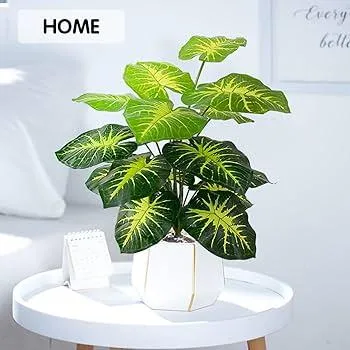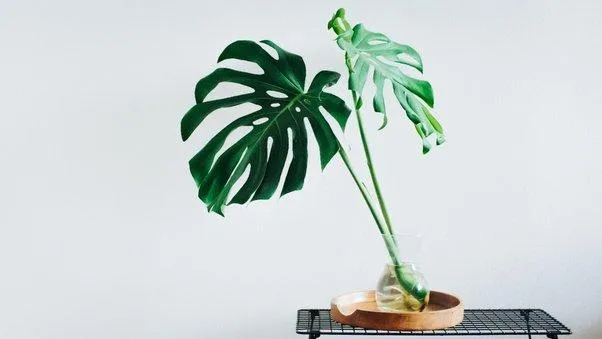Are Monsteras Safe For Cats? A Comprehensive Guide
The monstera deliciosa, also known as the Swiss cheese plant or holey-leaf plant, has become hugely popular as a houseplant in recent years. With its large, colorful leaves featuring distinctive natural holes and splits, it adds an attractive touch of the tropics indoors. But if you have cats, you may wonder – is keeping a monstera safe around feline friends?
My Experiences With Cats And Houseplants
From my experience owning both cats and indoor plants, it’s important to thoroughly research any potential toxicity before introducing new plants to a home with cats. As curious creatures, cats often taste or nibble on leaves and soil. While many common houseplants pose no risk, some can make cats sick if ingested. So whenever I’ve brought home a new plant variety, I’ve checked websites like the ASPCA’s toxicity database to be sure.
I’ve faced situations where one of my cats tasted leaves from a plant I hadn’t properly vetted yet. Thankfully, by knowing the toxicity risks ahead of time, I was able to monitor her closely and quickly determine if medical care was needed. Now I always do my homework first to avoid scary incidents and protect my furry friends.
Are Monsteras Toxic to Cats?
The good news is that monstera deliciosa plants are considered non-toxic to cats. According to multiple credible sources like the ASPCA, emergency veterinary clinics, and plant toxicity databases, consuming any part of a monstera deliciosa poses no risk of illness or adverse reaction to cats.
While the holes and lobes of mature monstera leaves may resemble something edible to a curious cat, monstera plants do not contain harmful alkaloids, terpenoids, glycosides or other toxic compounds that could cause problems if ingested by kitties.

Possible Hazards From Cats Interacting With Monsteras
However, that doesn’t mean monsteras are completely risk-free for cats. While the plants themselves are non-toxic, there are still a few potential issues worth considering:
- Cats may taste or scratch at monstera leaves and damage them.
- Younger or smaller monsteras could potentially be knocked over by climbing/jumping felines.
- The fuzzy coating on new monstera leaves may irritate a cat’s mouth if licked or chewed.
- The occasional nibble may not cause poisoning, but eating large amounts of leaves could lead to an upset stomach.
So in summary – monsteras are considered safe for cats to be around. But like any houseplant, it’s best to cat-proof your monstera and supervise interactions to prevent possible injuries from rough play or plants toppling over.
Tips For Cat-Proofing Your Monstera
Here are some tricks I’ve used from my experience to keep monsteras out of harm’s way of curious cats:
- Place the plant up high, such as on a tall shelf or hanging plant hanger out of jump/climbing reach.
- Put the monstera pot inside a heavy, sturdy nursery pot as a guard to prevent knock-overs.
- Apply a spicy-smelling deterrent like citrus or pepper around the base to discourage nibbling and scratching.
- Gently pinch or trim new fuzzy growth as it appears, since that’s most likely to attract kitty interest.
- Supervise kitty interactions with the monstera until you’re sure they won’t cause damage.
With a little precautions, monsteras can totally work as a great addition to any home that includes curious cats. Just follow basic plant safety protocols and you’ll be in the clear.
A Real-Life Example
I’ll never forget the time our monstera had gotten so big, it was totally within clawing reach of our naughty kitten Loki. One evening, I came home to find huge chunks of leaves had been ripped to shreds all over the floor! Turns out Loki had decided the monstera was the perfect scratching post.

Thankfully the plant bounced back after a trim, but it was definitely a lesson that we needed to relocate “Miss M” out of little Loki’s territory. Now she hangs happily in the corner, well above the furkids’ antics. And our mischievous monster Loki has found plenty of other things to destroy instead.
Final Thoughts On Cats And Monsteras
In conclusion, while monsteras themselves present no toxicity risk to cats, it’s still a good idea to take precautions when keeping the plant around felines. With care and proper “cat-proofing”, monsteras can totally work as a pet-safe houseplant option. But monitoring interactions and understanding a cat’s natural curiosity is key.
Overall, if you like the look of monsteras but have concerns for your cat’s safety – don’t write them off completely. With some adjustments like placement height, trimming fuzzies, and supervision during adaptation, monsteras can often peacefully coexist alongside furry friends. Give it a try, with safety as the top priority!
I hope this guide has helped answer any questions about keeping monsteras and cats. Let me know if you need any other plant or pet advice! With care and precaution, we can help our pets and plants live safely together.
Monstera Deliciosa Safety for Cats
| Plant Part | Toxicity Level |
|---|---|
| Leaves | Low |
| Stems | Low |
| Fruit | Moderate |
| Sap | Low |
| Seeds | Potentially High |
| Symptoms of Poisoning | Vomiting, diarrhea, skin irritation |
| First Aid | Induce vomiting if ingested, monitor cat for signs of illness |
| Cat-Proofing Tips | Keep plant high out of reach, remove fallen leaves/fruit, wash hands after touching |
FAQ
-
Is a monstera plant poisonous to cats?
Basically, monstera deliciosa and other types of monstera plants are toxic to cats if they eat any part of the plant. The sap and leaves may cause vomiting or diarrhea in cats. So it’s best to keep monsteras out of reach of curious felines.

-
What parts of a monstera plant are poisonous to cats?
All parts of the monstera plant are unsafe for cats to eat. This includes the leaves, stems, fruits and sap. The toxins can make kitty feel pretty crummy if they munch on monsteras. So keep an eye on your plants and discourage your cat from sampling any greens.
-
What are the symptoms if a cat eats monstera?
If little Fluffy got into the monsteras, she may exhibit signs within a few hours. The most common issues are vomiting, diarrhea, lethargy and loss of appetite. At the same time, the toxins can potentially affect kitty’s heart or nervous system as well. Nevertheless, most cases are not life-threatening if diagnosed and treated fast.
-
How do you treat a cat that ate monstera?
If your furry friend got a lick of monsteras, call your vet right away. They can assess the situation and provide treatment. For mild cases, they may simply monitor Peaches for symptoms at home. However, more serious poisonings may need supportive care at the clinic. Either way, the sooner you get help the better the chances of a fast recovery.
-
Can I keep a monstera if I have cats?
On one hand, monsteras are lush, exotic houseplants that add style. At the same time, they can pose a risk to curious kitties. But perhaps there’s a compromise – you could place your monsteras high up, like on a tall bookshelf or hanging mobile that cats can’t reach. Or keep them in a securely closed room. Just make kitty-proofing your top priority so your plants and pets stay safe.
-
What’s the deal with monsteras being toxic to cats?
That’s a good question! Experts aren’t totally sure what compounds in monsteras cause issues for cats. Some potential toxins include calcium oxalate crystals and phenolic compounds. These substances can irritate a cat’s digestive system or interfere with other functions. On the other hand, monsteras aren’t generally dangerous to people in small amounts. So in summary – monsteras are simply best avoided by our feline friends.

-
Do all types of monsteras pose the same risk?
It appears that most monsteras, or Swiss cheese plants, contain toxic elements that can sicken cats. This includes the common species monstera deliciosa. However, the risk may vary between varieties – some anecdotes suggest Ceriman monsteras may be slightly less hazardous. Ultimately, to be on the safe side, it’s wise to consider all monsteras as off-limits to our furry pet companions. Unless an expert specifically says otherwise for a certain type.
In summary, while monstera plants are amazing housegreens, they can be pretty awful for cats if ingested. With a little plant positioning or pet-proofing though, you can perhaps still keep monsteras and cats coexisting in your home. Just be extra cautious and don’t take chances with Fluffy’s safety. Hopefully this FAQ helped sort out whether monsteras are acceptably safe with felines around. Please let me know if you need any other questions!
